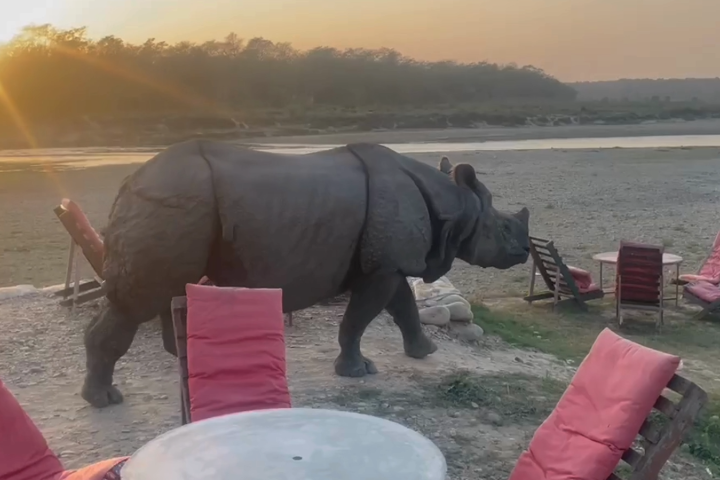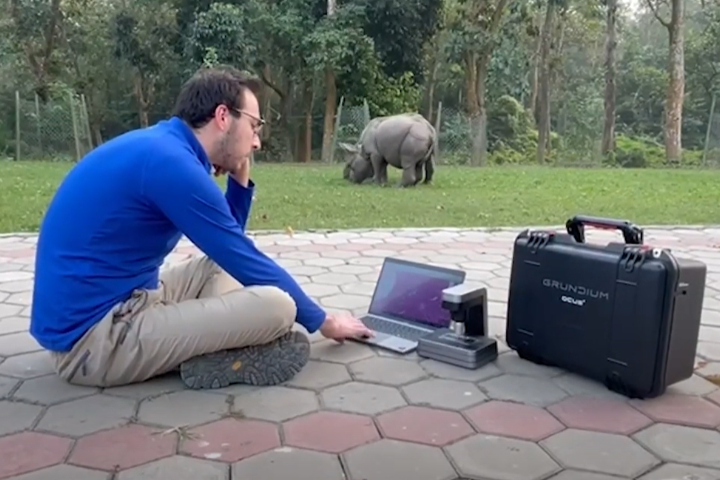News

August 06, 2025
A recent Cornell study suggests that young and adolescent bats may be the most likely to transmit coronaviruses to other species.

Video
July 24, 2025
A greater one-horned rhino strolls down the street in Nepal, just outside Chitwan National Park.

July 18, 2025
The Janet L. Swanson Wildlife Hospital, which has more than tripled its caseload over the past decade, is renovating its facilities to treat an increasing number of injured or ill native wild animals.

Video
July 15, 2025
The Cornell College of Veterinary Medicine hosted its second annual Symposium on Artificial Intelligence in Veterinary Medicine with a keynote by Dr. Alex Dehgan of Conservation X Labs, highlighting how AI can drive accessible, global conservation solutions.

Video
July 09, 2025
While in Chitwan, Nepal, Drs. Carmen Smith and Martin Gilbert captured footage of a free-roaming greater one-horned rhino passing through the bar.

July 08, 2025
Center director, Dr. Steve Osofsky, cautions against the serious consequences of reducing federal funding for the development and production of mRNA vaccines targeting pandemic influenza viruses, including H5N1 avian flu.

July 03, 2025
A new paper by Dr. Steve Osofsky and team was recently selected for the Editor’s Choice honor by the journal CABI One Health. The selected publication discusses the AHEAD program’s work over the past two decades.

June 30, 2025
Warmer winters and shifting climates are helping ticks thrive in new places. From Lyme disease to meat allergies, learn how these tiny invaders are changing the map and what you can do to protect yourself.

Video
June 26, 2025
Dr. Carmen Smith, our Free-Ranging Wildlife Pathology Fellow, was reviewing tissue samples at the National Trust for Nature Conservation Biodiversity Conservation Center in Chitwan, Nepal, when a curious greater one-horned rhino came closer to inspect his work.
News
June 25, 2025
Dr. Jessica Siegal-Willott ‘97, DVM ‘02, credits her training at Cornell University’s College of Veterinary Medicine with laying a strong foundation for her career, which spans clinical practice, conservation, and public service....
